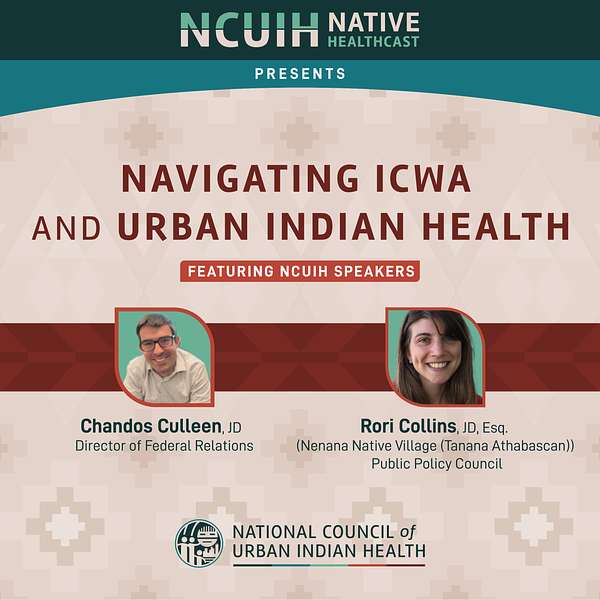
NCUIH Native Healthcast
This is the official podcast of the National Council of Urban Indian Health (NCUIH). These episodes elevate conversations about Native health and the development of quality, accessible, and culturally competent health services for American Indians and Alaska Natives living in urban settings.
NCUIH Native Healthcast
Navigating ICWA and Urban Indian Health
Join hosts Rori Collins, JD, Esq. (Nenana Native Village (Tanana Athabascan)), Public Policy Counsel at the National Council of Urban Indian Health (NCUIH) and Chandos Culleen, JD, Senior Director of Federal Relations at NCUIH in an engaging discussion on the Indian Child Welfare Act (ICWA) and its intersection with urban Native communities. ICWA is a federal procedural law that establishes minimum federal standards for the removal and placement of Native children in state child welfare proceedings. ICWA applies to all Native children, no matter where they reside, and ensures that Native children are kept in their communities and culture when it is safe and appropriate. This episode will discuss the history of ICWA, why ICWA is still important today, how ICWA applies to urban Native youth, and recent litigation surrounding ICWA. Listen now to gain a deeper understanding of ICWA's crucial role in safeguarding Native children and preserving Native communities.
The NCUIH Native Healthcast is produced by Jessica Gilbertson, MPA (Turtle Mountain Band of Chippewa), Director of Communications and Events, and introduced by River Carroll (Cheyenne and Arapaho), Policy and Communications Associate at NCUIH.
Timestamps:
[00:02:13] Shedding light on the haunting reality of forced removal.
[00:04:33] Unveiling the historical context that led to ICWA.
[00:08:38] Understanding ICWA's role in child placement.
[00:12:37] Analyzing a recent Supreme Court case impacting ICWA.
[00:18:38] Recognizing ICWA's significance in urban Native communities.
[00:21:08] Exploring the symbiotic relationship between urban Native communities and ICWA.
[00:25:19] Acknowledging the crucial role of Urban Indian Organizations (UIOs.
[00:29:31] Examining the intersection of equal protection and an ICWA case.
[00:34:06] Understanding ICWA's role in protecting federal Indian law.